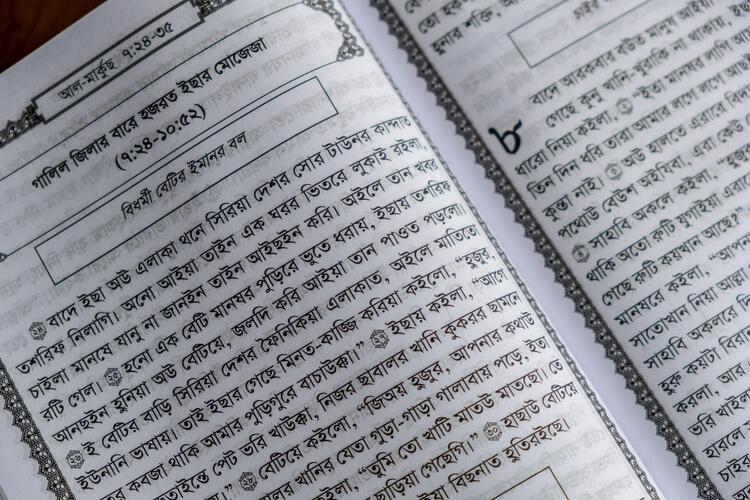
Book 6: Romans
In the first part of the Holy Injil, that is the first five books, the accounts of Hozrot Isa al-Mosi’s birth, his deeds, teaching, his death and his life after death are told. In addition, there are some accounts of the deeds of his Companions and the assemblies (jamaats) of that era.
In the second portion of the Holy Injil, the next 21 books are written in the form of letters. If we read these letters we can understand the situations of the Isaei jamaats of that time, their lifestyles, their faith and their earthly conduct and behaviour. This book, Romans ('al-Ruman'), is the first book of this second portion of the Holy Injil and is very valuable and important.
The writer of this book is Hozrot Isa al-Mosi’s Companion Hozrot Paulus (r.a.). He wrote this book approximately 25 years after Hozrot Isa went up from the world to heaven. Before writing this book he had never visited the city of Rome, but he intended to go preaching in various countries, then to Rome and from there to Spain. He is therefore informing the people of the Isaei jamaat in Rome about his intended journey. He is also giving many essential instructions and exhortations.
His main teachings are in chapters 1-8, principally: how a person is reckoned as acquitted of sin and innocent in Allah’s presence if he believes in Hozrot Isa, and how he may spend a holy and pure life because of receiving the Holy Spirit given by Allah. As it is written in verse 1:17, “It is by the power of faith that, being reckoned innocent, a person’s soul will live.” In chapters 9-11 it is written that because of being incapable of fully obeying the commands and injunctions of the revealed Law of Hozrot Musa (pbuh) the Israelite people became wicked and disobedient to Allah, and that by trusting in this revealed Law they disregarded the Good News of Hozrot Isa also. In reality, if they believe in this Good News, their souls will be safe in the end.
Next, in chapters 12-16, is teaching with logical reasoning on the following subjects: how one can surrender oneself as a willing sacrifice in Allah’s presence; instruction on the conduct of real life for people of the assembly; the relationship of the believer with his country’s ruler or government.
